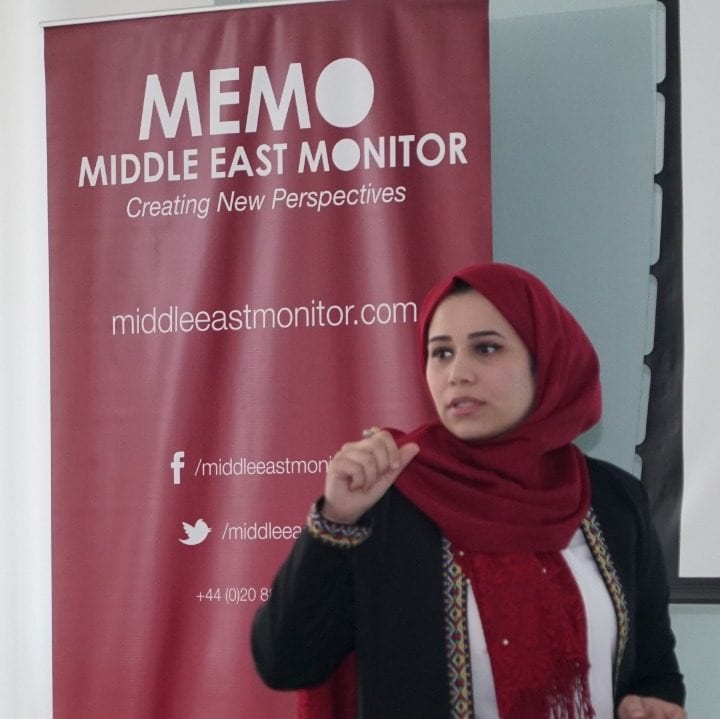In his book Seven days in Palestine, Jehad Yousef weaves a deeply personal journey with stories of the persecuted Palestinians in their land as he seeks to expose the crimes of the Israeli occupation authorities. The Palestinian doctor, who has lived in Venezuela for more than 30 years, narrates in detail his first return to his homeland under the control of the Israeli occupation. He offers detailed insights into the history of the Zionist movement and how British colonialism paved the way for the ethnic cleansing of Palestine. The book has been published in Spanish. The author talks about the continuing suffering of Palestinians in moving between Israeli checkpoints, ongoing arrest campaigns, illegal settler incursions and the apartheid wall.
“The book reflects my personal experience during my visit to Palestine in 2006 after 20 years of an Israeli ban,” Yousef told me. “My first visit to my homeland where I was born, to my Palestinian family and grandparents, the place where I spent my childhood and where I completed my studies. I have exposed the brutal practices of the occupation against the Palestinians. “It conveys the painful reality in stark contrast to the fake Zionist narrative that Western and Latin American media adopt.”
Jehad Yousef was born in the village of Iskaka in 1957 in the north of the West Bank. In the aftermath of the 1967 war, Yousef and his family were expelled from their homeland. In 1979, he went to Spain to study medicine, and was unable to return to Palestine after qualifying as a doctor. He moved around the world before arriving in Cuba in 1992. It was there that he specialised in paediatric medicine. Since moving to Venezuela, he has lived and worked in Ciudad Guayana. He has held the position of Director General of the Palestinian Federation in Latin America, and been a member of the Palestinian National Council since 2018.
![Jehad Yousefs book Seven Days in Palestine [Jehad Yousef]](https://i0.wp.com/www.middleeastmonitor.com/wp-content/uploads/2023/03/resized-1-6.jpg?resize=500%2C333&ssl=1)
Jehad Yousefs book Seven Days in Palestine [Jehad Yousef]
Despite his Venezuelan passport, Yousef encountered a lot of hostility during his trip to occupied Palestine. “With my own eyes,” he explained, “I witnessed the real suffering of the people just for being Palestinian. My possession of a foreign passport did not help me. I saw how humanity is oppressed, Palestinian houses are destroyed, Palestinian youths are killed or imprisoned and human beings are treated like animals at Israeli checkpoints.”
It was very hard at the checkpoints. “They separated me from the others, asked me questions repeatedly, and searched me from top to bottom. All because I wanted to go home and meet my family.”
According to Yousef, his seven days in Palestine were the most important days of his whole life, hence the title of his book. “I always write for myself and keep most of my writings to myself. After my visit to Palestine in 2006, I met a friend who motivated me and told me that my book deserves to be published. He helped me to get my book published.”
In his book, he recounts how an Israeli soldier argued with him about her right to the land of Palestine, even more than the Palestinians themselves, even though she only arrived in the occupation state from her homeland Argentina four years ago, and simply because she is a Jew. “I was a shocked when she told me that she has more right to the land than my grandparents who were born and grew up there.”
Yousef’s book is now available on Amazon and is in many local libraries in Venezuela. It may be translated into several languages, which he is happy about. “The book is written for people all over the world, so that they may learn about the suffering of our people under occupation through the facts and my own personal experience.”
![Jehad Yousefs book Seven Days in Palestine [Jehad Yousef]](https://i0.wp.com/www.middleeastmonitor.com/wp-content/uploads/2023/03/resized-1-1-2.jpg?resize=500%2C333&ssl=1)
Jehad Yousefs book Seven Days in Palestine [Jehad Yousef]
Under the presidencies of Hugo Chavez (1999-2013) and now Maduro (2013-present), Venezuela has expressed strong solidarity with the Palestinian cause. It was the first country in Latin America to recognise the State of Palestine on the 1967 nominal borders. In 2009, Venezuela and the Palestinian Authority established diplomatic relations and announced the opening of a Palestinian Embassy in Caracas. Diplomatic ties remain close, and Venezuela has supported the Palestinian cause at the UN. There are also economic ties, including oil deals, emergency aid and scholarships for Palestinian medical students. Venezuela was the first country to grant free travel and movement to the Palestinians without a prior visa, and grants residence rights to Palestinians. According to President Maduro, his country would “like to give more” for Palestine.
The physical distance between Palestine and Venezuela may limit the Palestinians’ knowledge of their great supporters in Latin America to what they see on television. They should rest assured, though, that the solidarity is both strong and very real.
![Jehad Yousefs book Seven Days in Palestine [Jehad Yousef]](https://i0.wp.com/www.middleeastmonitor.com/wp-content/uploads/2023/03/resized-1-2-1.jpg?resize=500%2C333&ssl=1)
Jehad Yousefs book Seven Days in Palestine [Jehad Yousef]


![Jehad Yousef and his book Seven Days in Palestine [Jehad Yousef]](https://i0.wp.com/www.middleeastmonitor.com/wp-content/uploads/2023/03/00efb51a-4955-42f0-912e-c61e215ca10c.jpg?fit=1200%2C636&ssl=1)









